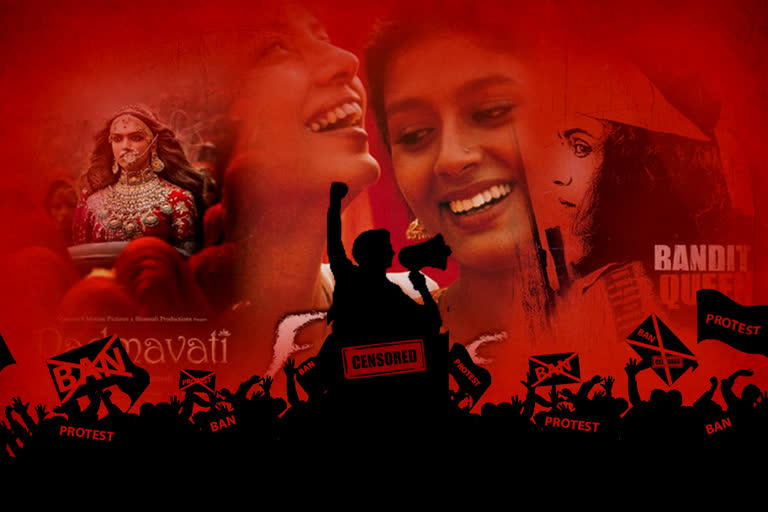This trend is catching up like a wildfire in the country and unfortunately, there is no permanent solution in sight.
Cinema and filmmakers suffer at the hands of political parties, fringe groups, communities, government policies and at times fall prey to moral policing too.
In a diverse country like ours, cinema like any other art form is hugely perceived from the prism of social strata and religion. Thus the cries of storytellers for freedom of expression and speech getting curbed persistently fall on deaf ears of policymakers.
Ahead of the release of a film, protest from the fringe group is the worst nightmare a filmmaker can imagine of. While the film suffers unreasonably on the pretext of 'hurting sentiments', the huge money at stake and lives of hundreds of people associated with the film are suddenly tossed into jeopardy.
WATCH | What release clash? Akshay-John 'Dostana' above all
What is the cause for serious concern here is the silence of policymakers and submission of filmmakers to such irrational demands by various organisations.
When filmmakers under pressure try to make peace with groups objecting their films they are in a way encouraging this practice and set a wrong precedent for the future recurrence of a similar issue.
How opinions can be formed without watching the film in the first place?
As soon as the trailer releases, claims of hurting the sentiments start pouring in from left right and center. In the cases like 'Padmavat', the cacophony reached its crescendo when Rs 5 crore bounty was announced on the heads of film's actor and director.
READ | 'Doing patriotic films by default, not design', says John
The scale of chaos surrounding 'Padmavat' was something unheard of in a democratic country like ours.
On the other hand, filmmakers' tryst with censorship is another aspect which needs a reformation in the relevance of today's day and age.
When the OTT platforms are growing by leaps and bounds, censoring movies or content in the name of maintaining public peace, respecting emotions of people and similar other reasons sound too naïve to digest.
What makes the policymakers doubt the intellect of the audience?
WATCH | Vicky Kaushal has become face of patriotism?
In times to come, wouldn't it be a welcome change if the viewers are allowed to watch the movie first and then form their own opinion about it?
Time and again the film fraternity urges to abrogate with the existing censoring system and instil a rating body instead.
If democracy has to evolve in its completeness – Cinema, a powerful medium cannot be overlooked. Screening of films and documentaries should not be denied for reasons based on mere speculations. A permanent solution, therefore, is essential to nail this scourage. The question is will a new law be the final solution?



